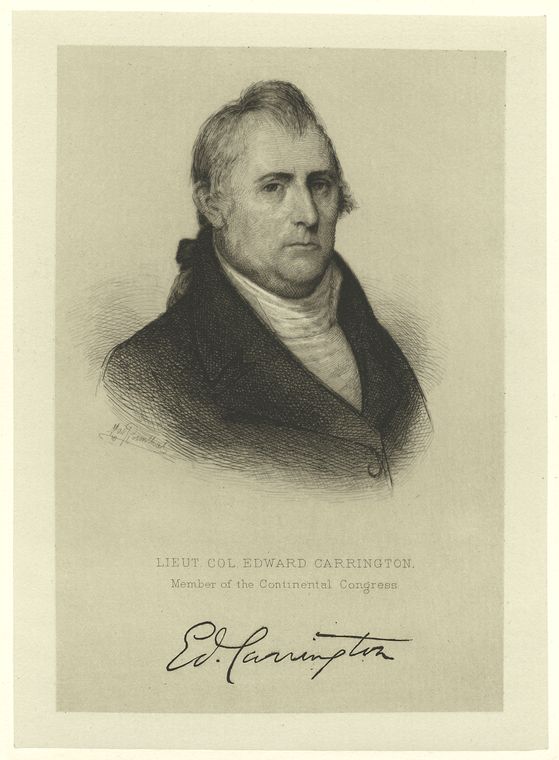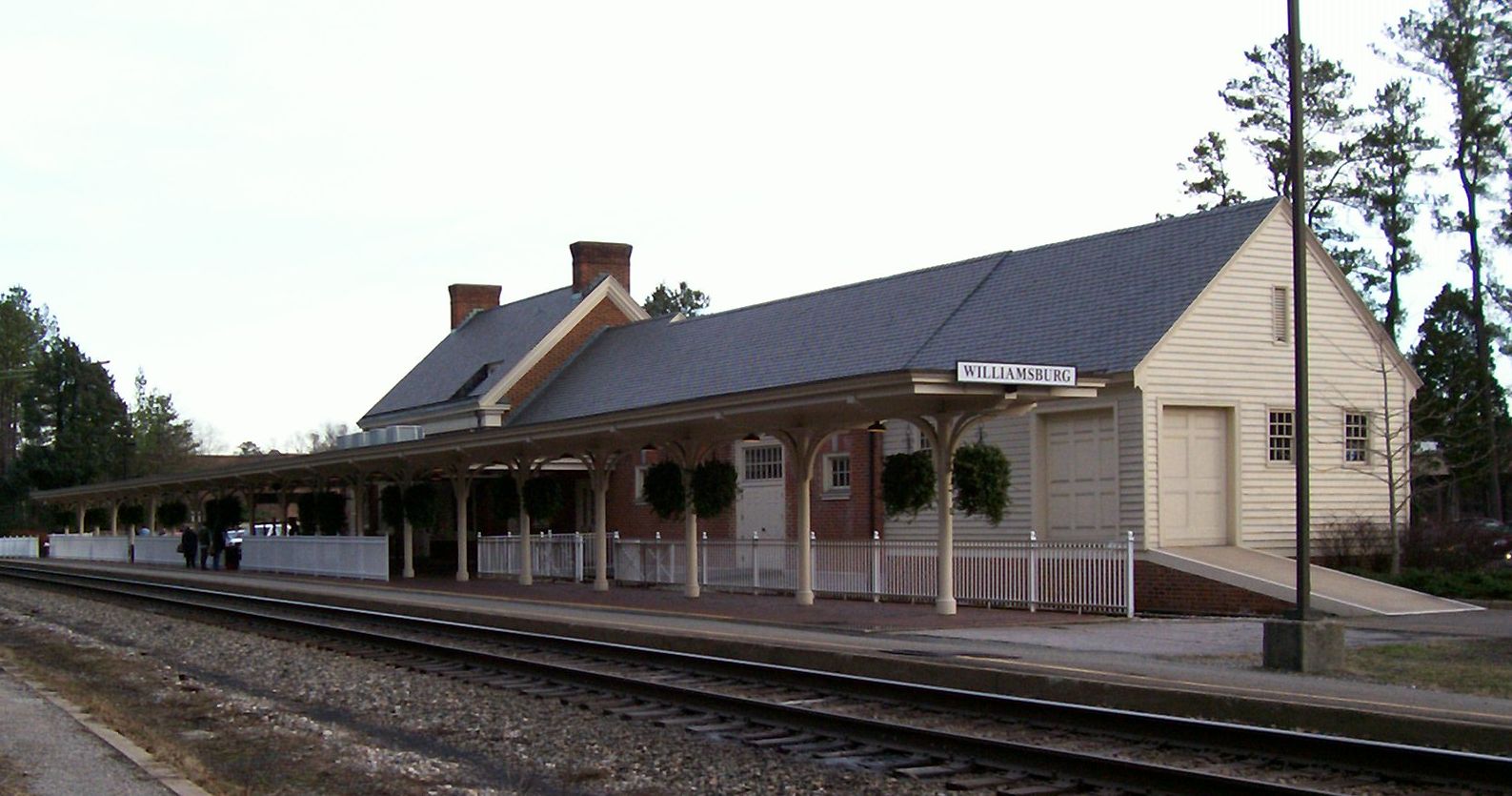|
Charles Harrison (general)
Charles Harrison (1740 – 12 December 1793) was born into the noted Harrison family of Virginia. His brother was a signer of the Declaration of Independence and his nephew, William Henry Harrison, later became the America’s 9th president. At the beginning of the American Revolutionary War he became lieutenant in a company of artillery from Virginia. When the state expanded its small artillery battalion into a regiment in November 1776, Harrison was appointed commander with the rank of colonel. Initially named Harrison's Continental Artillery Regiment, the unit was renamed the 1st Continental Artillery Regiment in August 1779. He joined George Washington's main army in time to fight at Monmouth. In 1780 he led his gunners at Camden and the following year he commanded Nathanael Greene's artillery at Hobkirk's Hill. Harrison's regiment Charles Harrison was born about 1740 in Charles City, Virginia Colony of parents Benjamin Harrison IV and Anne Carter. On 1 December 1775, t ... [...More Info...] [...Related Items...] OR: [Wikipedia] [Google] [Baidu] |
Charles City, Virginia
Charles City is a census-designated place (CDP) in Charles City County, Virginia, United States. It is the county seat of Charles City County. The population as of the 2020 census was 104. The community is centered on the Charles City County Court House, from which it takes its variant names Charles City Court House and Charles City Courthouse. Charles City lies at the intersection of State Routes 5 and 155. It is southeast of Richmond, east of Hopewell, west of Williamsburg, and about north of the James River. Notable people * Susan Wise Bauer, writer and historian * Lott Cary, first black Baptist missionary to Africa *Benjamin Harrison V, signer of the Declaration of Independence *Martha Jefferson, First Lady of Virginia and wife of Thomas Jefferson *John Tyler, US president * Freeman Walker, US senator from Georgia *William Henry Harrison, U.S. presidentWikipedia Demographics Charles City was first listed as a census designated place A census-designated pla ... [...More Info...] [...Related Items...] OR: [Wikipedia] [Google] [Baidu] |
1st Continental Artillery Regiment
The 1st Continental Artillery Regiment, also known as Harrison's Continental Artillery Regiment, was authorized on 26 November 1776 as Colonel Charles Harrison's Continental Artillery Regiment. Raised for service during the American Revolutionary War, as originally organized, the regiment comprised 10 artillery companies from Virginia. Two of the artillery companies existed since early 1776. The regiment was first assigned to the Southern Department, but in March 1778 it was reassigned to General George Washington's main army. In August 1779, the unit was renamed the 1st Continental Artillery Regiment. It continued to serve with the main army until April 1780 when it was transferred to the Southern Department. In May 1780, Maryland artillery companies formally joined the regiment, making a total of 12 companies. In January 1781, the regiment was reorganized with 10 companies. Furloughed in the summer of 1783, the regiment was disbanded in November the same year. Elements of the reg ... [...More Info...] [...Related Items...] OR: [Wikipedia] [Google] [Baidu] |
Henry Knox
Henry Knox (July 25, 1750 – October 25, 1806) was an American military officer, politician, bookseller, and a Founding Father of the United States. Knox, born in Boston, became a senior general of the Continental Army during the Revolutionary War, serving as chief of artillery in all of George Washington's campaigns. Following the war, he oversaw the War Department under the Articles of Confederation from 1785 to 1789. Washington appointed him the nation's first Secretary of War, a position which he held from 1789 to 1794. He is well known today as the namesake of Fort Knox in Kentucky, which is often conflated with the adjacent United States Bullion Depository. Knox was born and raised in Boston where he owned and operated a bookstore, cultivating an interest in military history and joining a local artillery company. He was also on the scene of the 1770 Boston Massacre. He was barely 25 when the Revolutionary War broke out in 1775, but he engineered the transport of capture ... [...More Info...] [...Related Items...] OR: [Wikipedia] [Google] [Baidu] |
Valley Forge, Pennsylvania
The village of Valley Forge is an unincorporated settlement. It is located on the west side of Valley Forge National Historical Park at the confluence of Valley Creek and the Schuylkill River in Pennsylvania. The remaining village is in Schuylkill Township of Chester County. It once spanned Valley Creek into Montgomery County. The name Valley Forge is often used to refer to anywhere in the general vicinity of the park. Many places will use the name even though they are actually in King of Prussia, Trooper, Oaks, and other nearby communities. This leads to some ambiguity on the actual location of the modern village. There is a partial re-creation of the historic village from the time of the American Revolution that is located just within the outskirts of the park. History In 1751, there was a forge at the mouth of the East Valley creek used to convert pig iron into bar iron. It was advertised for sale as the property of Daniel Walker, Stephen Evans, and Joseph Williams. ... [...More Info...] [...Related Items...] OR: [Wikipedia] [Google] [Baidu] |
Williamsburg, Virginia
Williamsburg is an Independent city (United States), independent city in Virginia, United States. It had a population of 15,425 at the 2020 United States census, 2020 census. Located on the Virginia Peninsula, Williamsburg is in the northern part of the Hampton Roads metropolitan area. It is bordered by James City County, Virginia, James City County on the west and south and York County, Virginia, York County on the east. English settlers founded Williamsburg in 1632 as Middle Plantation (Virginia), Middle Plantation, a fortified settlement on high ground between the James River, James and York River (Virginia), York rivers, and farther inland than their headquarters at Jamestown, Virginia, Jamestown. The city functioned as the capital of the Colony of Virginia, Colony and Commonwealth of Virginia from 1699 to 1780 and became the center of political events in Virginia leading to the American Revolution. The College of William & Mary, established in 1693, is the second-oldest inst ... [...More Info...] [...Related Items...] OR: [Wikipedia] [Google] [Baidu] |
Berkeley Plantation Harrison Home
Berkeley most often refers to: *Berkeley, California, a city in the United States **University of California, Berkeley, a public university in Berkeley, California *George Berkeley (1685–1753), Anglo-Irish philosopher Berkeley may also refer to: Places Australia * Berkeley, New South Wales, a suburb of Wollongong Canada * Berkeley, Ontario, a community in Grey County United Kingdom * Berkeley (hundred), an administrative division from late Saxon period to the 19th century * Berkeley, Gloucestershire, a town in England United States * Berkeley, California, a city in the San Francisco Bay Area, the largest city named Berkeley * Berkeley, Denver, a neighborhood in Denver, Colorado * Berkeley, Illinois, a suburb of Chicago * Berkeley, Missouri, a northwestern suburb of St. Louis * Berkeley Township, Ocean County, New Jersey * Berkeley, Rhode Island * Berkeley, Virginia (other) * Berkeley, West Virginia * Berkeley County (other) People * Berkeley (g ... [...More Info...] [...Related Items...] OR: [Wikipedia] [Google] [Baidu] |
Second Continental Congress
The Second Continental Congress (1775–1781) was the meetings of delegates from the Thirteen Colonies that united in support of the American Revolution and American Revolutionary War, Revolutionary War, which established American independence from the British Empire. The Congress constituted a new federation that it first named the United Colonies of North America, and in 1776, renamed the United States, United States of America. The Congress began convening in present-day Independence Hall in Philadelphia, on May 10, 1775, with representatives from 12 of the 13 colonies, following the Battles of Lexington and Concord, the first battles of the Revolutionary War, which were fought on April 19, 1775. The Second Continental Congress succeeded the First Continental Congress, which met from September 5 to October 26, 1774, also in Philadelphia. The Second Congress functioned as the ''de facto'' federation government at the outset of the Revolutionary War by raising militias, direc ... [...More Info...] [...Related Items...] OR: [Wikipedia] [Google] [Baidu] |
Edward Carrington
Edward Carrington (February 11, 1748 – October 28, 1810) was an American soldier and statesman from Virginia. During the American Revolutionary War he became a lieutenant colonel of artillery in the Continental Army. He distinguished himself as quartermaster general in General Nathanael Greene’s southern campaign. He commanded artillery at Monmouth and Yorktown. He was also present at Cowpens, Guilford Court House, and Hobkirk's Hill. During the war he became a close friend of George Washington. Carrington served in the 3rd Continental Congress and was the first US Marshal appointed from his state. He was an original member of the Society of the Cincinnati. Family Edward Carrington was born on February 11, 1748, on Boston Hill Plantation near the town of Cartersville in old Goochland County, Virginia, later split off into Cumberland County, Virginia. He was the eighth of the 11 children of George Carrington and Anne Mayo. His father George arrived in Virginia in 172 ... [...More Info...] [...Related Items...] OR: [Wikipedia] [Google] [Baidu] |
Matross
A matross was a soldier of artillery, who ranked next below a gunner. The duty of a matross was to assist the gunners in loading, firing and sponging the guns. They were provided with firelocks, and marched with the store-wagons, acting as guards. In the United States Army, a matross ranked as a private of artillery. The word is probably derived from French ''matelot'', a sailor. The OED states that the word is borrowed from the Dutch ''Matroos'' ('a sailor of the lowest rank'), and is cognate with similar terms in German, Danish and Swedish. at Oxford English Dictionary
The ''Oxford English Dictionary'' (''OED'') is the principal historical dictionary of t ...
[...More Info...] [...Related Items...] OR: [Wikipedia] [Google] [Baidu] |
Sergeant
Sergeant (Sgt) is a Military rank, rank in use by the armed forces of many countries. It is also a police rank in some police services. The alternative spelling, ''serjeant'', is used in The Rifles and in other units that draw their heritage from the British light infantry. The word "sergeant" derives from the Latin , 'one who serves', through the Old French term . In modern hierarchies the term ''sergeant'' refers to a non-commissioned officer positioned above the rank of a corporal, and to a police officer immediately below a lieutenant in the US, and below an inspector in the UK. In most armies, the rank of sergeant corresponds to command of a team/section (military unit), section, or squad. In Commonwealth of Nations, Commonwealth armies, it is a more senior rank, corresponding roughly to a platoon second-in-command. In the United States Army, sergeant is a more junior rank corresponding to a fireteam leader or assistant squad-leader; while in the United States Marine Corps ... [...More Info...] [...Related Items...] OR: [Wikipedia] [Google] [Baidu] |
Captain (land)
The army rank of captain (from the French ) is a commissioned officer rank historically corresponding to the command of a company of soldiers. The rank is also used by some air forces and marine forces, but usually refers to a more senior officer. History The term ultimately goes back to Late Latin meaning "head of omething; in Middle English adopted as in the 14th century, from Old French . The military rank of captain was in use from the 1560s, referring to an officer who commands a company. The naval sense, an officer who commands a man-of-war, is somewhat earlier, from the 1550s, later extended in meaning to "master or commander of any kind of vessel". A captain in the period prior to the professionalization of the armed services of European nations subsequent to the French Revolution, during the early modern period, was a nobleman who purchased the right to head a company from the previous holder of that right. He would in turn receive money from another nobleman t ... [...More Info...] [...Related Items...] OR: [Wikipedia] [Google] [Baidu] |



